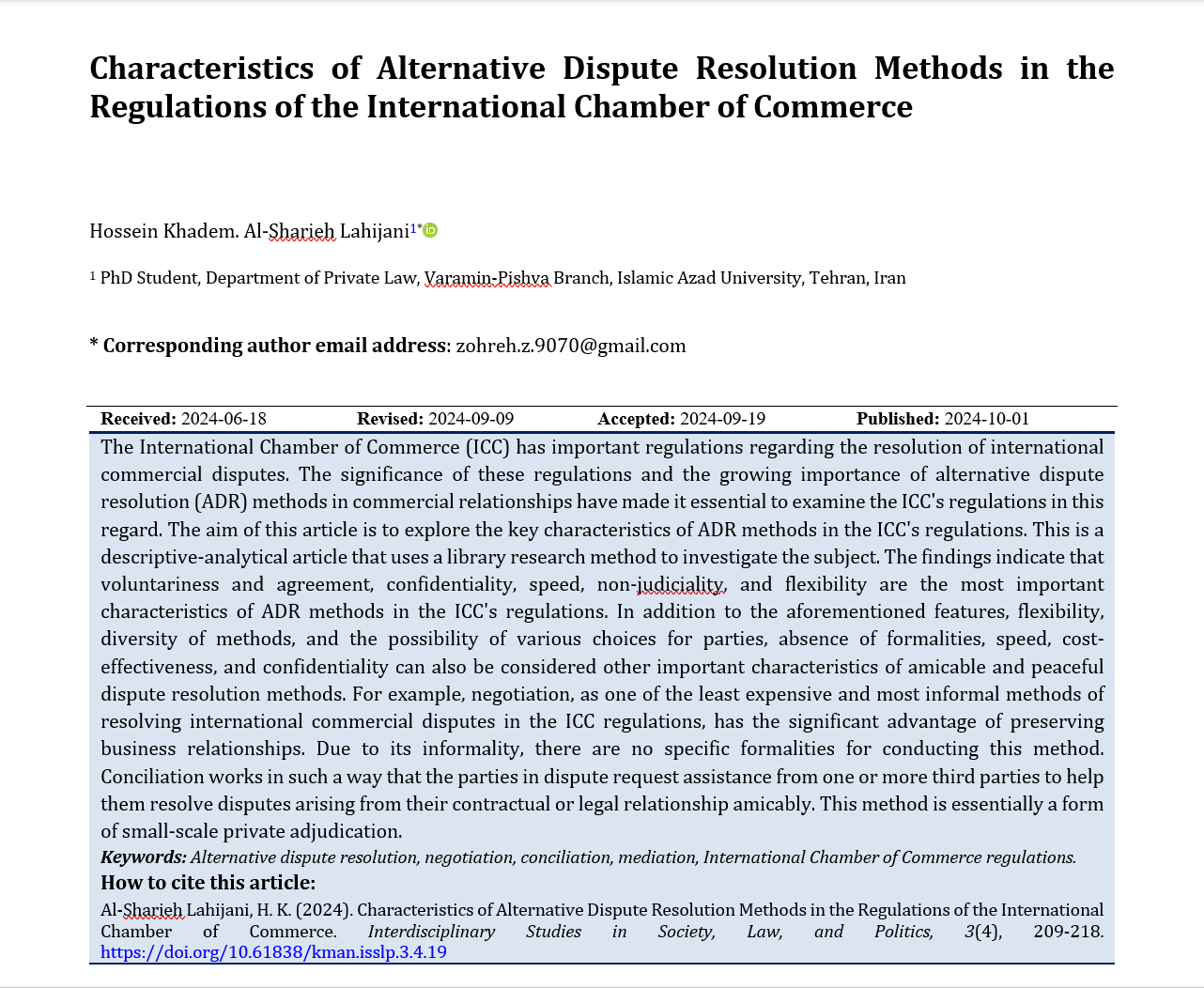Characteristics of Alternative Dispute Resolution Methods in the Regulations of the International Chamber of Commerce
Keywords:
Alternative dispute resolution, negotiation, conciliation, mediation, International Chamber of Commerce regulationsAbstract
The International Chamber of Commerce (ICC) has important regulations regarding the resolution of international commercial disputes. The significance of these regulations and the growing importance of alternative dispute resolution (ADR) methods in commercial relationships have made it essential to examine the ICC's regulations in this regard. The aim of this article is to explore the key characteristics of ADR methods in the ICC's regulations. This is a descriptive-analytical article that uses a library research method to investigate the subject. The findings indicate that voluntariness and agreement, confidentiality, speed, non-judiciality, and flexibility are the most important characteristics of ADR methods in the ICC's regulations. In addition to the aforementioned features, flexibility, diversity of methods, and the possibility of various choices for parties, absence of formalities, speed, cost-effectiveness, and confidentiality can also be considered other important characteristics of amicable and peaceful dispute resolution methods. For example, negotiation, as one of the least expensive and most informal methods of resolving international commercial disputes in the ICC regulations, has the significant advantage of preserving business relationships. Due to its informality, there are no specific formalities for conducting this method. Conciliation works in such a way that the parties in dispute request assistance from one or more third parties to help them resolve disputes arising from their contractual or legal relationship amicably. This method is essentially a form of small-scale private adjudication.
Downloads






